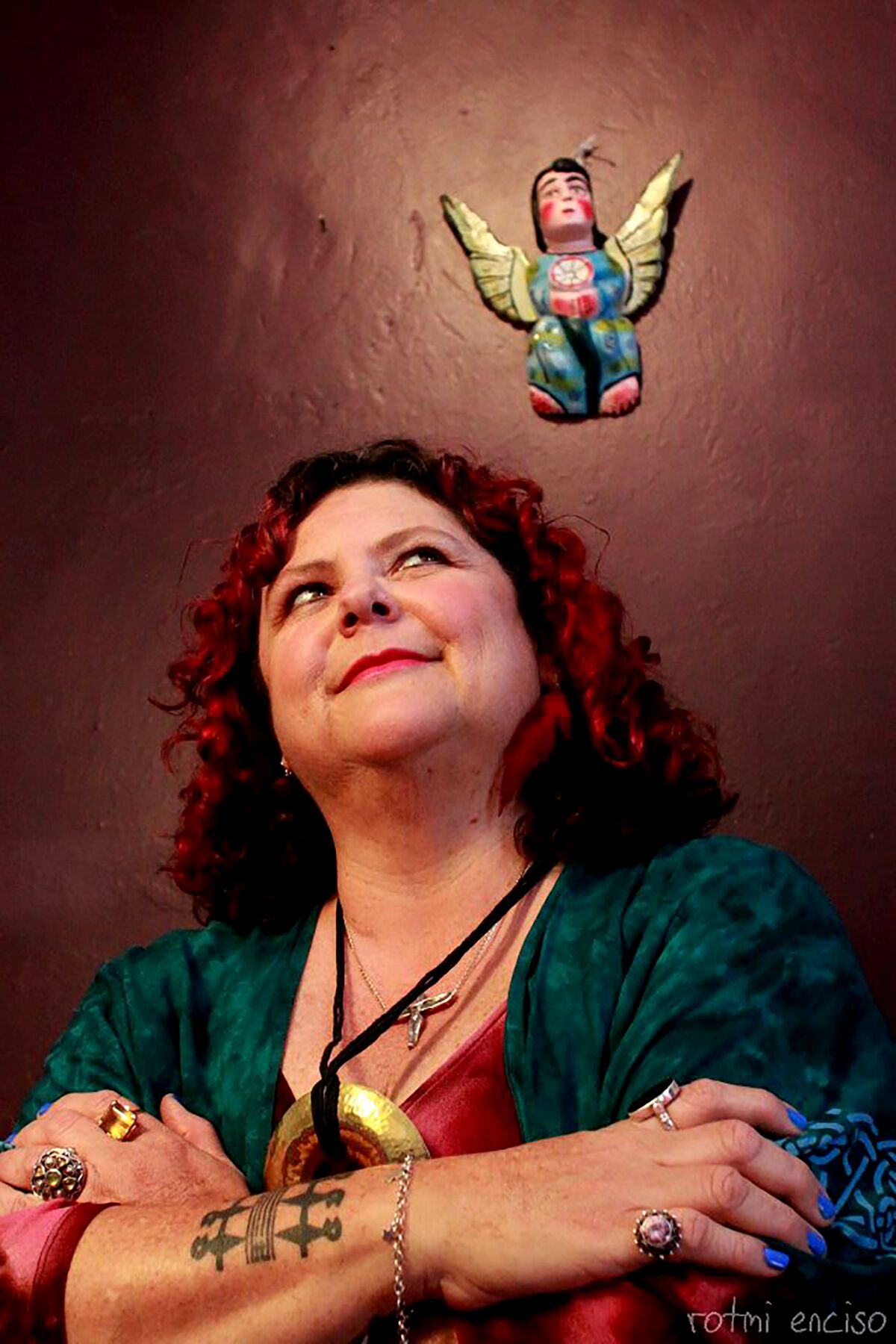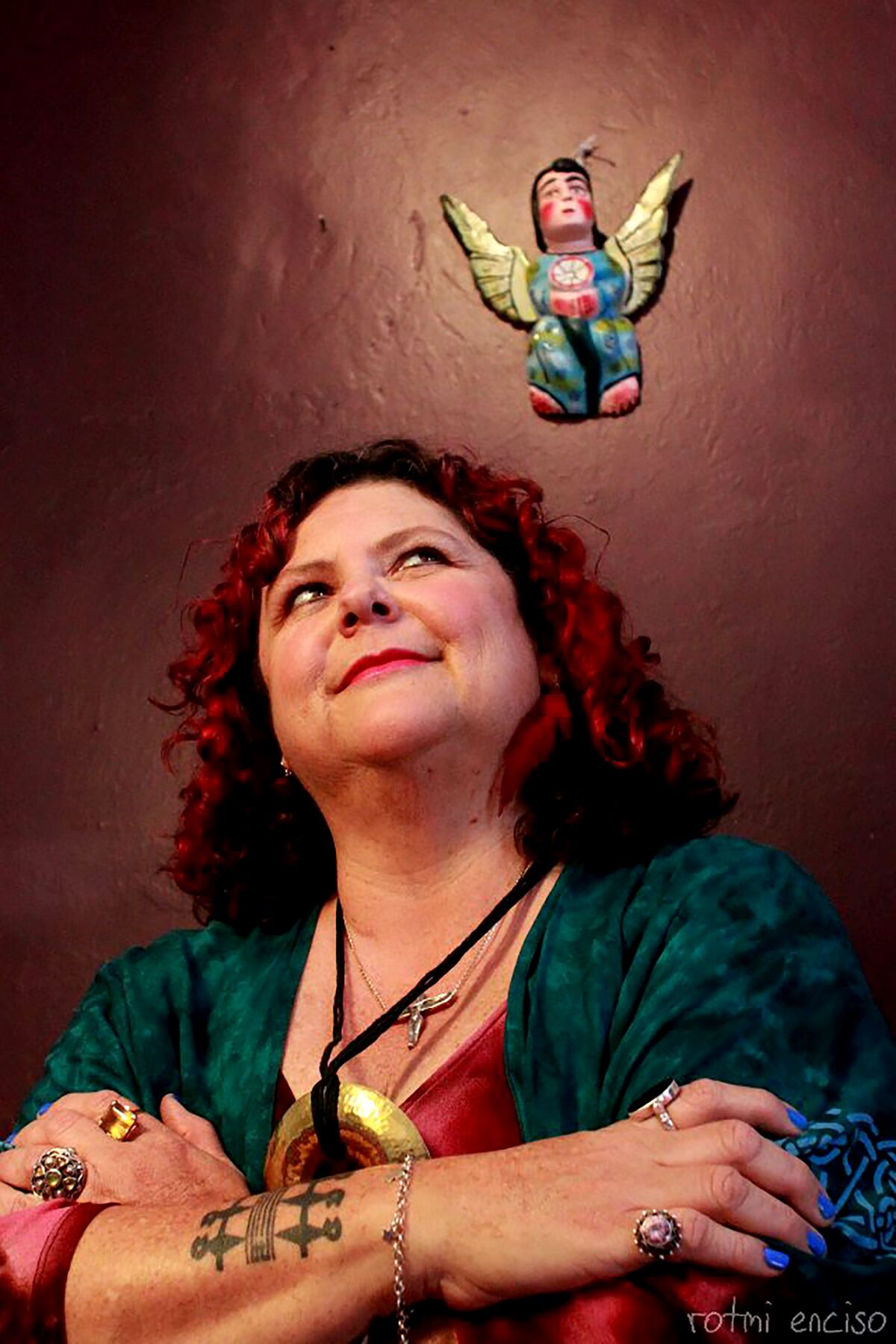
tatiana de la tierra died in Long Beach in 2012.
(Rotmi Enciso)
The majority of American readers are, unfortunately, unfamiliar with the name tatiana de la tierra. By way of introduction, here is how the late writer described herself in the essay “Aliens and Others”: “I am a fat, slightly bearded lesbian. A white Latina of Colombian extraction. A pagan lacking in Catholic guilt. A hedonist who knows shame. I have been diagnosed with lupus. Drive a pink and purple pickup. Collect rocks. Been poor most of my life. Knew gold-plated Gucci wealth for a few memorable years. I am a writer.”
De la tierra was born under a different name in Villavicencio, Colombia, in 1961, grew up in Miami and died in Long Beach, Calif., in 2012. She wrote fierce, bawdy, politically outspoken literature and edited some of the first Latina lesbian publications distributed in the U.S. and Latin America. Though she herself never broke into the literary mainstream anywhere, she wrote of and for writers at the margins of the margins everywhere.
This fall, a Colombian publisher has compiled her chapbooks and a few other works into a single collection for the first time under the title “Redonda y Radical.” With any luck, this is just the beginning of a long posthumous career.
During her lifetime, de la tierra published two professionally bound books. The first was “For the Hard Ones: A Lesbian Phenomenology,” described as “A lesbian manifesto for hardcore dykes, baby dykes, and wanna-be lesbians.” A bilingual edition was brought back into print in 2018. Her other book, “Xia y las mil sirenas,” published in Mexico in 2009, was a children’s book about mermaids, lesbian mothers and the power of chosen family.
The vast majority of her work, however, was self-published during the 2000s in chapbooks under the moniker of Chibcha Press and distributed by hand at music festivals, lesbian gatherings and literary events. Some of these chapbooks found inspiration in publishing traditions throughout Latin America — such as the methods of the cooperative Eloísa Cartonera in Argentina, which began making handmade books with cardboard covers (cartoneras) after the economic crisis in 2001. A champion of self-publishing, de la tierra would recycle paper and scavenge cardboard, then decorate her cartoneras by hand, creating works that were truly one-of-a-kind.

Chapbooks by tatiana de la tierra made in the style of Argentinian “cartoneras.”
(tatiana de la tierra)
The writing itself was just as singular — unassimilated and unafraid even by today’s standards. Her poem “Big Fat P— Girl” is an unabashed litany of praise of her genitalia, beginning with “Queen-size c—” and piling on further epithets: a “whaler of a c—,” a cruise ship, the World Wide Web, a Cadillac, a castle, an eagle, Jupiter, the Library of Congress, Disney World and, finally, “the Sonora Matancera of C—.” Her work isn’t always so explicit, but it’s persistently sexy and hilarious.
It is also unique in its treatment of bilinguality. Some authors use Spanish words only when there is no direct English equivalent. Others may choose to fluctuate between English and Spanish in a way that ensures it remains accessible to non-Spanish speakers. De la tierra would produce some works only in Spanish, others only in English and still others in Spanglish. She wrote without concession to the borders of any language or nation.
Her writing was also as sonically rich as writing can be. She sometimes brought instruments to readings. On the musicality of her work, her mother, Fabiola Restrepo, said, “I would read poetry to her, even when she was potty training. Well, more than read, I would recite to her. Rafael Pombo is one of the poets I would recite to her.” Luckily, there are still recordings of de la tierra voicing her incantatory work.








